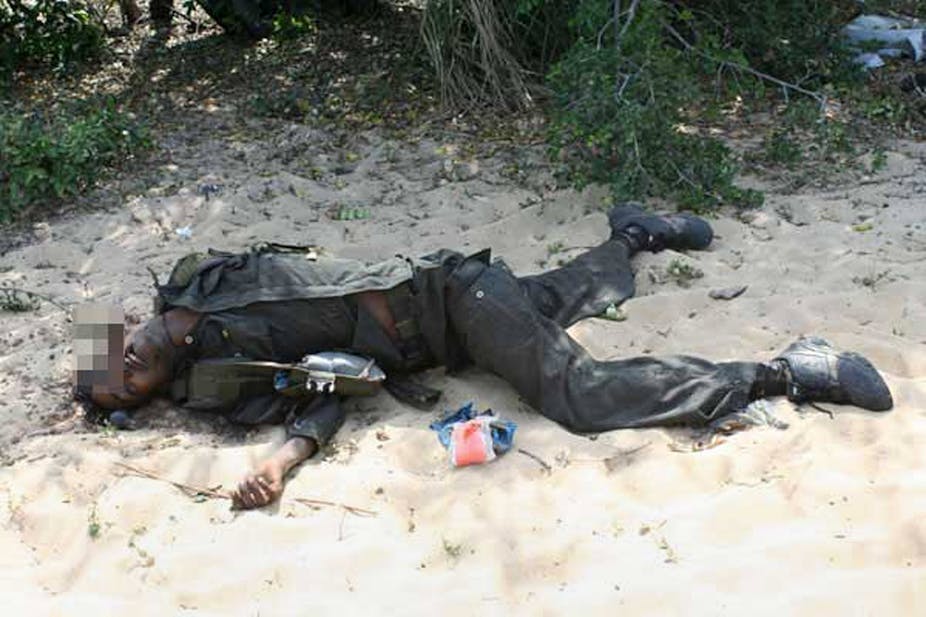What makes Australians morally outraged? What gets really gets our blood boiling? It would seem that Four Corners has inadvertently put this question to the test this week.
On Monday the 4th of July 2011 a Four Corners report flooded Australian lounge rooms with horrid footage of Liberation Tiger of Tamil Eelam (better known as the Tamil Tigers) fighters and Tamil civilians being brutalized, raped and shot by Sri Lankan state security forces.
Rarely are actual deaths allowed to air on television let alone to be bought or sold. Yet this footage was justified on the basis that we needed to see the truth of what has been happening behind the public face of Sri Lanka.
Kerry O’Brien front ended the Four Corners program with a reminder of the shocking footage shown several weeks ago of cattle slaughtered in Indonesian abattoirs and the ensuing outrage across the nation, leading to the immediate halt of live exports to Indonesia. He continued by stating that tonight Four Corners would show footage of the brutal slaughter of Tiger fighters and civilians in Sir Lanka.
Four days later and where is the outrage?
We watched as people cowered in ditches, babies screamed as shell bombs exploded, the body parts of hospital patients were scattered, and children saw their parents die in front of their eyes. Innocent Tamil civilians herded like cattle into ever decreasing “no fire zones” and slaughtered. The behaviour of the Sri Lankan Army more shocking and debased than any actions caught on camera in the Indonesian abattoirs.
Most surely many of us retired on Monday night feeling disturbed by the dark depths to which humanity can be lowered. Yet nothing! No public outrage, no continuing debate over what should be done, no government trading halt with Sri Lanka, no nationally driven pressure on the government to petition the UN, only silence!
Whatever Kerry’s intention was in making the link between the slaughter of cows and the slaughter of humans, he has highlighted an apparent discrepancy in the moral conscience of Australian’s. Why are we outraged when cows are killed inhumanly, but comparably apathetic when other humans are no less brutalized?
One reason may be that we feel a sense of moral responsibility for our role in exporting cattle to be slaughtered in Indonesia, but we don’t feel the same sense of responsibility for the slaughter of the Tamils in Sri Lanka. Yet the Tamil people have been seeking asylum within Australia since the Sri Lankan government offensive in 2008.
Under the UN convention we are (morally) responsible for providing asylum to people who have a well founded fear of persecution in their home country. If such graphic footage caused us to rethink our export of cattle, why hasn’t it caused us to rethink our import of these human asylum seekers and refugees?
Moral reasoning is far from a rational process. It is driven by emotional reactions and those reactions are in turn driven by a largely self-serving perception of the world. It would seem that Four Corners has outed our murky moral compass.
Let me first discount one reason that our cows, but not the Tamil Tigers, are viewed as deserving of our protection. The Tamil Tigers are terrorists. They have used innocent humans as shields and engaged other atrocities in their push for independence and their fight against the Sri Lankan government. Our cows, presumably, have committed no such offenses. However, the Four Corners report focused on the death and destruction of innocent Tamils. That is, people who had nothing to do with any offensive, and children who had done nothing more than to be born into a civil conflict. These are the people seeking asylum in Australia.
A more likely reason is that our moral concern has limits, and one limiting factor is our national borders. We are morally outraged when unethical acts are committed against one of our own. Whenever there is a terrorist bombing, we are always eager to hear whether and how many Australians were affected, even though most of us share nothing more than a common national identity with these victims.
What is perhaps surprising is to find that our nationally determined moral concern extends to “our” cows – elevating them higher in our moral hierarchy than the Tamil people. Seeing our cows slaughtered inhumanely raises our collective blood pressure, but seeing the inhuman treatment of the Tamil people results in collective apathy and inaction.
No doubt issues of border protection and border control will remain firmly on the political agenda. But our emphasis on these borders not only serves to protect our resource rich and wealthy nation from “invasion”, it also appears to play a central role in the moral conscience of Australians.
As we focus on shoring up our nation against outside threat, we may be just as effectively restricting our capacity to extend moral concern beyond our borders.
No doubt the cows will be voting for tougher border protection measures in the next election.

